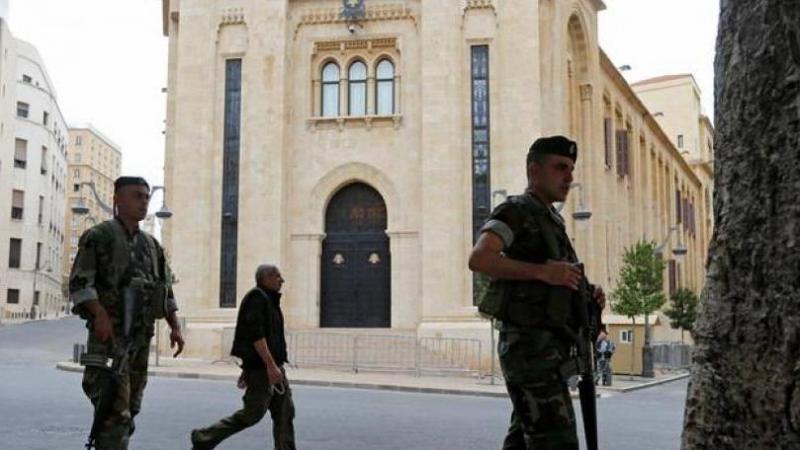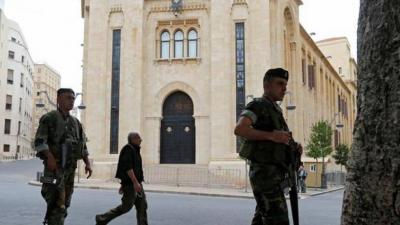Political consultations for government formation have not yet begun, as the conclusion of the battle over parliamentary committees is awaited. It remains unclear whether this will involve fierce confrontations given the new composition of the parliament. Multiple informed sources have intersected in their information, indicating a pause from all parties, particularly since the upcoming government will be a focal point of significant confrontation regarding its identity and balance of power. This government is not an "ordinary" one for sharing allocations but rather one that embodies the "division of influence" each party seeks in a later phase, especially in light of indicators suggesting an inability to elect a new president, meaning this government will be the actual ruling body amid the vacancy.
Sources indicated that disagreements over the government’s presidency and its structure will be multi-directional, involving a conflict between President Nabih Berri and President Michel Aoun, and consequently with the head of the Free Patriotic Movement, Gebran Bassil, as well as with opposition forces like the Lebanese Forces, the Kataeb, and independents who reject a "national unity" government, as some have stated, while others are "still deliberating."
Informed political circles regarding the "preparatory" consultations stated that "there will be significant difficulty in agreeing on a new prime minister, while some major forces believe that the remaining time until the end of the term does not warrant forming a new government, and that the current government can remain to manage daily affairs," asserting that "this is the likely option."
Awaiting President Aoun's call for mandatory consultations at the Baabda Palace, which sources say "will not occur before conducting side consultations to organize the political climate," discussions are ongoing regarding the completion of the legislative framework, expected to finalize in tomorrow's session. Parliamentary sources report a near agreement to maintain the sectarian composition of the committees and the current allocations of the main forces, meaning the Finance and Budget Committee will still belong to the Free Patriotic Movement, the Administrative and Justice Committee will be with the Lebanese Forces, and the Communications Committee with Hezbollah, while the Public Works Committee will go to MP Sajjay Atye and Foreign Affairs to the Amal Movement, and Health to the Socialist Party.
In this context, Free Patriotic Movement sources indicated that "negotiations with all political blocs, allies, and adversaries are ongoing smoothly to reach an agreement before the session to elect the members of parliamentary committees tomorrow." According to sources, the movement has communicated with the Lebanese Forces and the Speaker of Parliament since "everyone needs everyone else, and this work does not fall under the principle of quotas, but facilitates the formation of committees to begin legislative work." The movement aims for representation in various committees and to secure the presidency of three committees through three deputies: Ibrahim Kanaan at the head of the Finance and Budget Committee, Fadi Bustani for the National Economy, Trade, Industry, and Planning Committee, and Simon Abi Ramia for the Youth and Sports Committee. The movement affirms its non-opposition to the representation of the opposition bloc in all committees, stating that "there is no intention to exclude them, but if they insist on rejecting the agreement, then we will go to elections."
For its part, the Lebanese Forces prefer to establish an agreement with all blocs since "going to extended voting sessions is merely a waste of time, especially when there is room for everyone to participate." According to information, the meeting at the weekend of the Lebanese Forces deputies did not yield a clear picture regarding their direction for tomorrow, with the decision from Maarab expected in the coming hours to be communicated to the bloc. However, it is certain that the party leader is adamant about the membership of his deputies in all the committees, without finalizing their stance on chairing any committees, although one committee is of particular importance to the Lebanese Forces, namely the Administrative and Justice Committee, previously chaired by George Adwan.
As for the "opposition" forces, "Al-Akhbar" learned that the Secretary-General of Parliament, Adnan Daher, is negotiating with them, emphasizing the importance of cooperation, as entering into a confrontation will not benefit them. MP Paula Yacoubian told "Al-Akhbar" that "the bloc had previously met and decided to participate in all committees due to the importance of their presence in them for observation and effective participation." When asked if coordination occurred with other political parties, she stated that "the bloc prefers to work according to the law and the internal regulations, and sent names to the parliament’s secretariat without communicating with any political party at the bloc level, with its name raised for membership in two committees: Media and Communications, and Defense, Interior, and Municipalities."
On the side of the "Progress" party, represented in parliament by MPs Najat Saliba and Mark Douai, Saliba had previously announced his nomination for membership in the Environment and Higher Education and Culture committees, while Douai was nominated for the Finance and Economy Committees. Douai viewed that "the responsibility necessitates participation in all committees, and we will represent them through competent personalities that consider each individual's specialization. Our aim is to ensure that qualified professionals such as Najat Aoun are placed in the Environment Committee, Ibrahim Mneimneh in the Public Works Committee, and Melhem Khalaf in the Administrative and Justice Committee."
On another note, one of the independent MPs mentioned that "the bloc is awaiting the response of the parliament's secretariat to what it has submitted, to consider the secretariat's proposal among themselves, and then decide whether to accept or reject the proposal submitted by President Berri," affirming that they are "not in a position to engage in confrontation and assume good intentions in accepting their representation, especially since the number of committees is large and can accommodate everyone."




